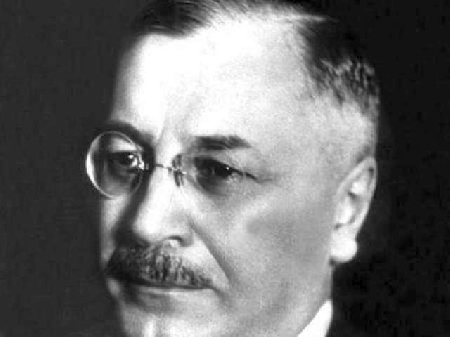Socialism in Romania in the 1900s
Find out more about the socialist ideas circulating in Romania at the start of the 20th century.

Steliu Lambru, 15.04.2013, 13:02
Around the 1900s Romanian intellectuals were looking for a model to solve the rural problem. The rural population accounted for more than 80% of Romania’s population and had to be helped to prosper economically and thus to contribute to the development of society. Most Romanian intellectuals had already embraced the idea of achieving emancipation by cultivating national identity, a project in which culture played a major role. However, a minority thought it wise to give priority to the economy and social emancipation. Under the influence of socialism and Marxism the progressive intellectuals had to fight no only their Conservative adversaries but also those who shared their ideas but not their solutions.
The national ideology was stronger, although around the 1900s both nationalism and socialism were in full swing. Sociologist Calin Cotoi with the Sociology Faculty of the Bucharest University believes the lack of support for the socialist idea is the result of the force of national ideology in a society that only later embarked on the path of modernisation. The rural issue did not turn into what socialism had hoped, in the sense that it was in fact national ideology that assimilated socialism and not the other way round.
The two great ideology trends that militated for the emancipation of peasants were Marxism and Poporanism, a name derived from “popor”, in English meaning people. The two trends did not find common ground for dialogue, on the contrary. Thus socialism, which was rather fragile, did not have a big influence on the rural population and political decision makers. At the level of ideas, the two ideologies used concepts which were much too abstract for their target group.
Marxism was represented mainly by Constantin Dobrogeanu-Gherea, or Soloman Katz by his real name, a refugee from Russia. The author of several books, including “Neo-serfdom”, a Marxist analysis of the economic situation of the peasants, Gherea was one of the most influential Socialist leaders. His opponent was also a refugee who came from Bessarabia, Constantin Stere. He brought from Russia the ideology of Narodniks also known as Narodnichestvo which he transformed, together with literary critic Garabet Ibraileanu into Poporanism. Sociologist Calin Cotoi explains:
Calin Cotoi: “Most Romanian Socialists, except for a small minority of French-Belgian orientation, were influenced by the Russian ideology called Narodnichestvo, which can be translated as “peopleism”. But the Romanian Narodniks did not want to be taken for Russian Narodniks. The Romanian poporanists always tried to distance themselves from the Russian Narodniks, and this was valid both in the case of Gherea and Stere. Although Constantin Stere’s books drew extensively on the writings of the Russian thinker Nikolay Mikhaylovsky, they only cited the German neo-positivists such as Eduard Bernstein, Karl Kautsky and Karl Marx. Their entire bibliography is German”.
The Romanian poporanists and the Narodniks had something in common: they chose a 3rd way of economic development, which was neither capitalist nor Marxist. The relationship between intellectuals and peasants was essential and the most important objectives were to take the economically advanced West as a reference point and overcome the contradictions between progress and tradition. Sociologist Calin Cotoi will next talk about the similarities and differences between the Romanian poporanism and the Russian Narodnichestvo.
Calin Cotoi: “It’s interesting to place the Romanian case in this Russian context because, in my opinion, poporanism was the beginning of the modernisation of Romanian society. Poporanism had two dimensions: a theoretical one, related to Constantin Stere and his disputes with the Marxists, and a dimension similar to Narodnichestvo, which included fragments from the cooperative farms movement, the emergence of banks and of rural loans. Transplanting Narodnichestvo into the Romanian environment was like transplanting a movement from an imperial context into the context of an emerging nation. This is fundamental in understanding the differences between the two movements”.
VF The peasant uprising of 1907 was the illustration of the diagnosis the Romanian socialists unsuccessfully tried to establish for Romania in the 1900s.





























